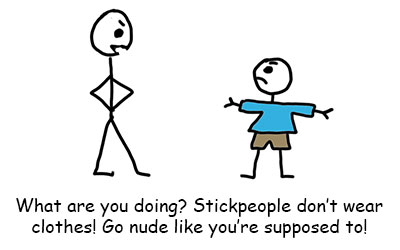
Go to any of the major stylebooks and you’ll find it stresses, often repeatedly, that the preferred voice is active, not passive, and that the author should use the first person when referring to themselves in the text.
Yet that self-referential, passive-voice “was done by the researcher” and all its cousins will not go away. In fact, even when I edit for ProofreadingPal and explain that the style manual they’re using calls for first person and active voice, I will sometimes get complaints and arguments.
And hey, explaining editorial suggestions is part of the job, and I’m happy to do it. But ultimately, my authority is the style manual. Some clients have been told by their instructors to refer to themselves in the third person or just avoid referring to themselves at all by using passive voice regardless of what APA, Chicago, MLA, AP, and so on say.
Get a free sample proofread and edit for your English document.
Two professional proofreaders will proofread and edit your English document.
Before we talk about why this pushback happens, let me call on those authorities now.
The Publishing Manual of the American Psychological Association (7th ed.) specifically mentions active voice on page 73 (3.3): “use . . . the active rather than the passive voice.” On page 118 (4.13), the manual says that while both the active and passive voices are “permissible,” it is best to “Use the active voice as much as possible to create direct, clear, and concise sentences.” Passive voice should be reserved for when the accent is on the recipient of the action rather than the action.
(For example, I used the passive voice above with “Some clients have been told by their instructors” because I wanted to stress the role of the client, not the instructor.)
Page 134 (5.2) calls for “person-first” language, which is another way to avoid passive voice: in other words, “the disabled person,” not “the person who was suffering from a disability.”
APA also specifically states that the author should use the first person to refer to themselves on page 120 (4.16):
To avoid ambiguity in attribution, use the first person rather than the third person when describing the work you did as part of your research and when expressing your own views. If you are writing a paper by yourself, use the pronoun “I”; do not use the pronoun “we” to refer to yourself if you do not have coauthors (see also Section 4.17).
APA sums it up best on page 118: “When it is important to know who performed the action, use the active voice.” When you are talking about something you or your team did, that is important, just as all other author citations are important.
The Chicago Manual of Style (17th ed.) states on page 264 (5.118):
As a matter of style, passive voice . . . is typically, though not always, inferior to active voice. . . . The choice between active and passive voice may depend on which point of view is desired.
The MLA Handbook for Writers of Research Papers (7th ed.) defers to Chicago, and AP calls for active voice as much as possible. First person for AP doesn’t come up much in news writing but is stressed for editorials.
So, What’s the Problem?
Academic papers of all disciplines have long been plagued by a sort of humblebrag. Many professors still teaching today were educated with a bias against the first person because they were supposed to make themselves obscure and stress that they were just “a researcher” like all other “researchers.” First person was seen as too informal, too personal, and too egocentric.
But times have changed. Multiple theories about the role of the researcher have pointed out that a lack of researcher bias is impossible. No one ever writes anything (yes, I’m being absolute here) free of personal opinion, personal culture, and personal orientation.
Take me. I’m showing my bias in my language (American English), my medium (the internet), my formatting (blog), my employer (ProofreadingPal), my experience (teacher, writer, editor, clerical worker, and that summer job at Burger King), and a hundred other things. To refer to myself as “the blogger” as though I’m not totally dominating every word here with my choices is hypocritical and ridiculous.
Another factor is that contemporary writing styles heavily prefer streamlined prose, and passive voice constantly adds words.
So today, style manuals call for first person and active voice, such as, “I collected data from 114 customers.” Yet many instructors and journal editors insist that writers plod through, “The data were collected by the researcher from 114 customers.”

So, What Do We Do?
Some changes to a language are quick, such as the addition of new words, new slang, new idioms, and the like.
Most changes to a language, however, are slow, particularly when you’re dealing with experts and their attitudes.
My suggestion is that if your instructor says to use passive voice and third-person self-reference and won’t be swayed by the style manual, just do what you’re told and get a good grade. If the journal you’re writing for has an in-house style manual, follow it. And if you’re writing an article that you eventually plan to submit to a journal or two, follow APA/Chicago/MLA/AP strictly and then comply with any changes the journal dictates.
Personally? I abhor wordiness, so active voice and first person are essential. But then, I’m no longer in school, and ProofreadingPal faithfully follows the client’s choice of manuals, thank goodness.
Julia H.
Get a free sample proofread and edit for your English document.
Two professional proofreaders will proofread and edit your English document.
Get a free sample proofread and edit for your document.
Two professional proofreaders will proofread and edit your document.
We will get your free sample back in three to six hours!